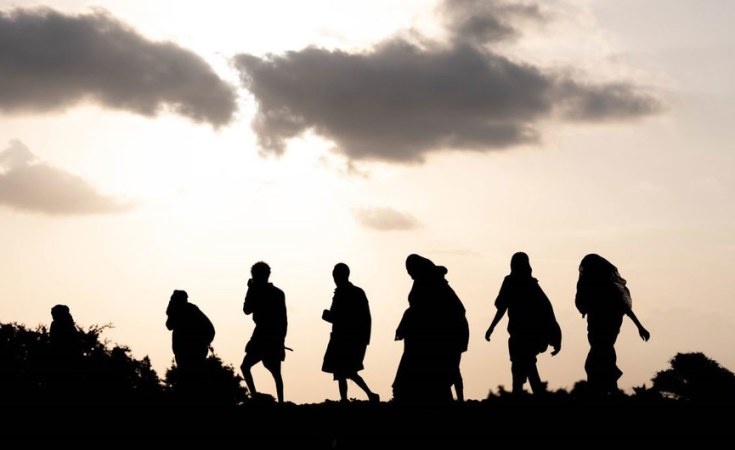
Migration and Peace

Migration

Refugee Assistance:
ED focuses on providing support and assistance to refugees and internally displaced persons (IDPs), including access to shelter, food, water, healthcare, education, and psychosocial support to help them rebuild their lives in a new environment.
Conflict Resolution and Peacebuilding:
We engage in conflict resolution initiatives, peacebuilding programs, and mediation efforts to address the root causes of conflict, promote dialogue, reconciliation, and peaceful coexistence among communities affected by migration and displacement.
Advocacy for Refugee Rights:
ED advocates for the protection of refugee rights, access to legal assistance, non-discrimination, and the implementation of international conventions and agreements related to refugees and migrants.
Integration and Social Cohesion:
We work towards the integration of migrants and refugees into host communities by promoting social cohesion, cultural exchange, employment opportunities, and initiatives that foster understanding and acceptance among diverse populations.
Humanitarian Aid and Emergency Response:
Based on the situation, we provide humanitarian aid, emergency relief, and disaster response services to migrants, refugees, and IDPs in crisis situations, including natural disasters, conflicts, and other emergencies that threaten their safety and well-being.
Research and Policy Advocacy:
We conduct research on migration trends, displacement patterns, human rights violations, and policy recommendations to advocate for more inclusive and effective policies that protect the rights of migrants, refugees, and displaced populations.
Capacity Building and Training:
We offer capacity-building programs, training workshops, and skills development initiatives for migrants, refugees, local authorities, CBOs, and other stakeholders to enhance their knowledge and skills in addressing migration-related challenges.
Community Engagement and Empowerment:
ED engages with migrant communities, host communities, women’s organizations, youth groups, and other stakeholders to empower them to participate in decision-making processes, advocate for their rights, and contribute to peaceful coexistence and social cohesion.
Peace

Women, Peace, and Security:
We highly involve gender-sensitive peacebuilding initiatives, women’s participation in peace processes, protection of women’s rights in conflict-affected areas, and the prevention of gender-based violence as integral components of sustainable peacebuilding efforts.
Conflict Prevention and Resolution:
ED engage in conflict prevention initiatives, early warning systems, mediation efforts, and peacebuilding programs to address the root causes of conflict, promote dialogue, reconciliation, and sustainable peace among communities facing tensions and violence.
Peace Education and Awareness:
We provide peace education programs, trainings, workshops, and awareness-raising campaigns to promote a culture of peace, non-violence, tolerance, and respect for human rights among women, youth, educators, community leaders, and the general public.
Advocacy for Peaceful Solutions:
ED advocate for peaceful solutions to conflicts, support diplomatic efforts, promote dialogue between conflicting parties, and lobby for the implementation of international agreements and resolutions that aim to prevent and resolve conflicts peacefully.
Reconciliation and Healing:
ED facilitate reconciliation processes, truth and reconciliation commissions, healing circles, and community dialogues to address past grievances, promote forgiveness, and foster social cohesion among communities affected by violence and division.
Peacebuilding in Post-Conflict Settings:
ED work in post-conflict settings to support peacebuilding efforts, transitional justice mechanisms, participate in/mediate for disarmament, demobilization, and reintegration programs, and the rebuilding of trust and social structures in communities recovering from conflict.
Interfaith Dialogue and Cooperation:
ED promote interfaith dialogue, religious tolerance, and cooperation among different religious and cultural groups to build bridges of understanding, respect diversity, and prevent religious-based conflicts and discrimination.
Research and Policy Advocacy:
ED conduct and participate research on peacebuilding strategies, conflict analysis, peace processes, and policy recommendations to advocate for more inclusive, participatory, and effective peacebuilding policies at the local, national, regional, and international levels.
Overall, ED in the thematic area of Peace play a big role for transformative, promoting a culture of peace, non-violence, dialogue, reconciliation, and sustainable peacebuilding in communities affected by conflict and violence.